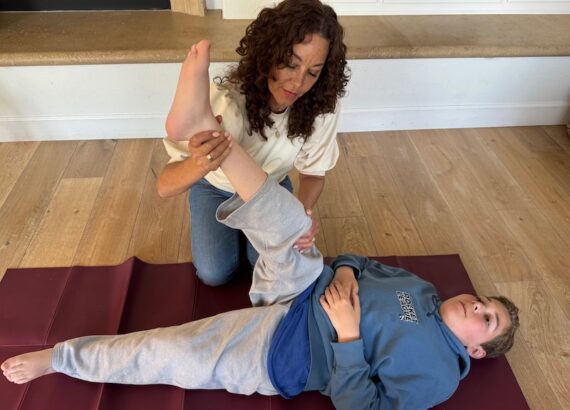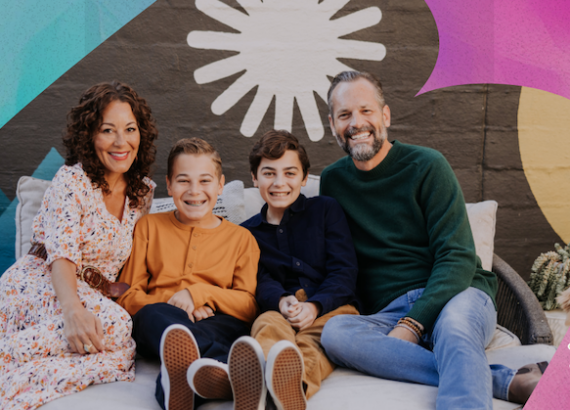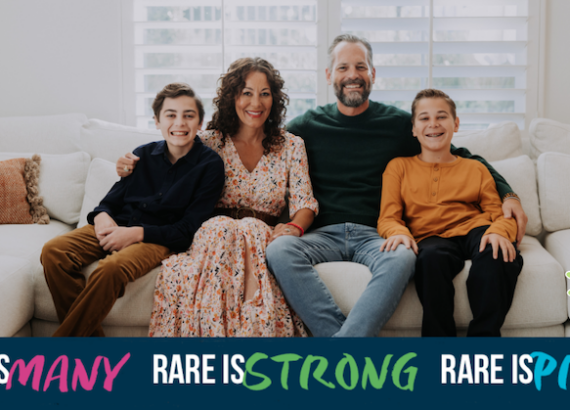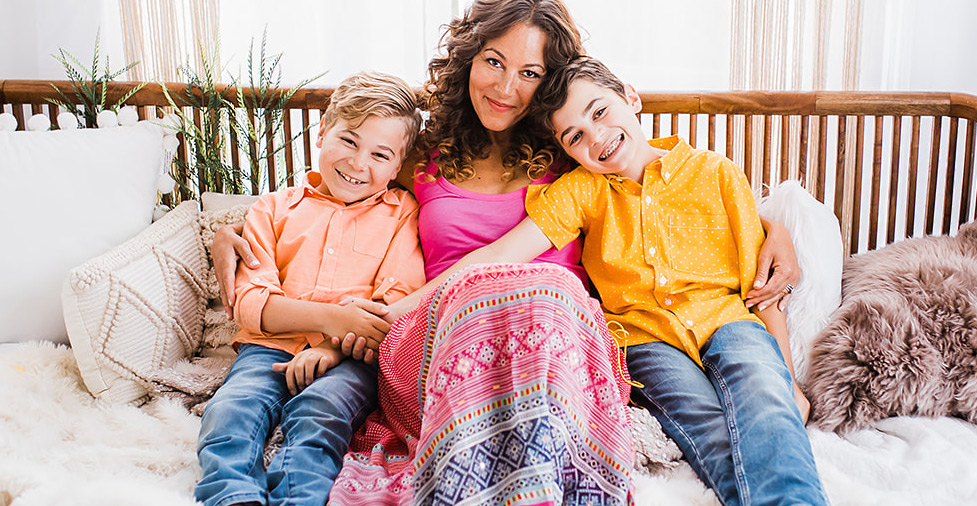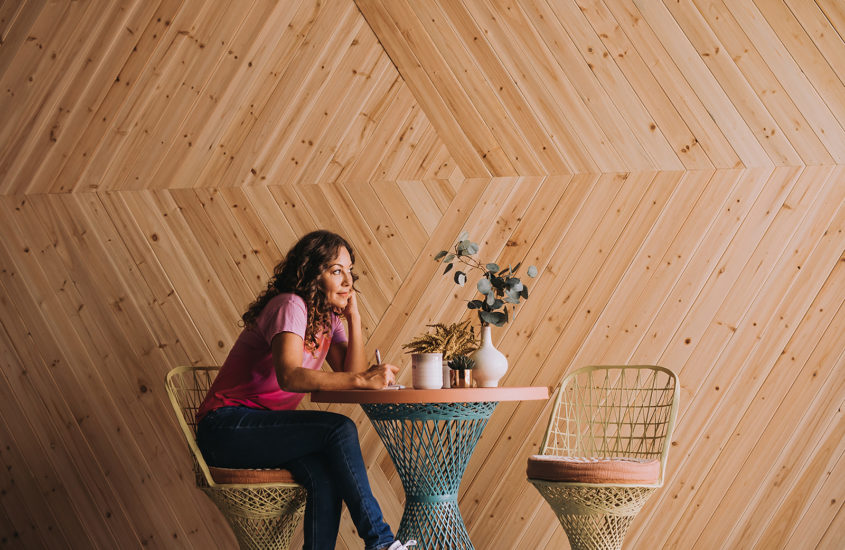My Story By Jenny Wildvank
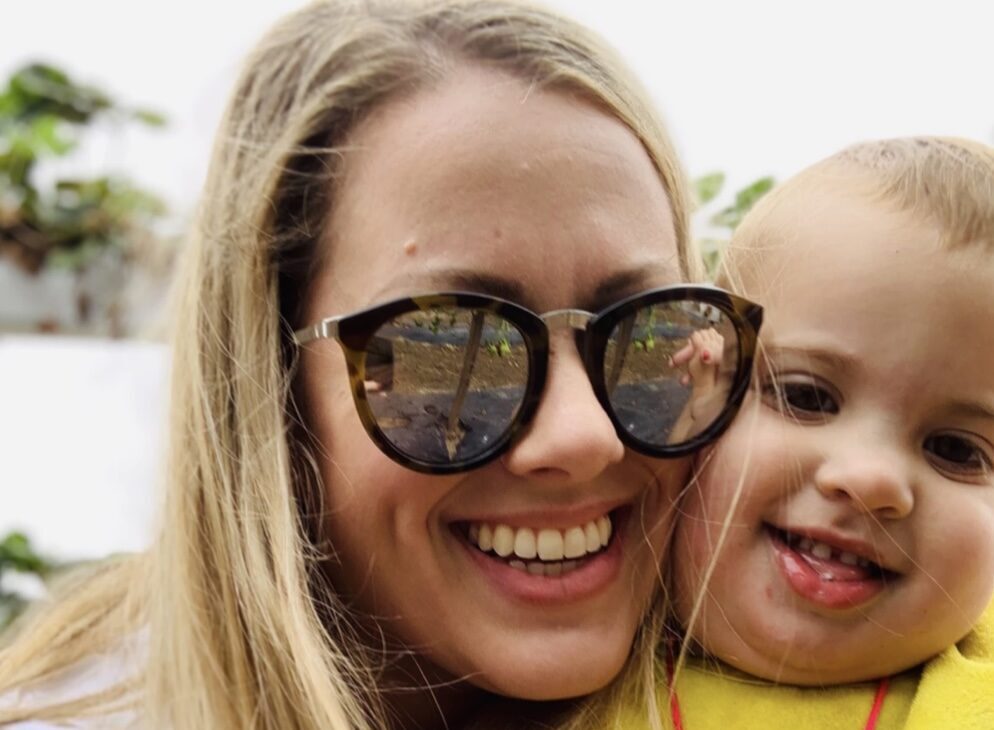
Since Dahlia was eight months old, we were concerned there was something wrong. She was a little floppy, wasn’t sitting up yet, and she did a funky thing with her eyes, similar to stimming. She also wasn’t reaching up to us nor pointing on time. She was, however, very attentive, engaging, vocal with babbling and laughing, loving, social, very much present in our world. This seemed to stump doctors and therapists a bit because it didn’t appear to be autism. Nor did they think it was Cerebral Palsy.
We did an MRI at 16 months, which showed delayed myelination, but that didn’t bring us to any sort of diagnosis, and there was a chance it would catch up. Of course, we hoped for that. She also had a thin corpus callosum, but we learned that many typical people have one too. We also did a microarray test early on and were relieved to hear nothing was off there, same for metabolic testing. She was testing inconclusive for all her hearing tests, but we believed she could hear just fine; she was just hypo-responsive to the beeps and sounds; they likely weren’t interesting enough for her to turn her head too.
By 12 months old, Dahlia was in Early Intervention and going to physical, occupational, and infant stimulation therapy a few times a week. I still had hope she would catch up. After she was about 20 months, not walking, and without any real words, the panic and dread really set in. I knew something was wrong. I specifically remember telling my friends, “whatever it is, fine, I can take it, but please don’t let it be degenerative or regressive.” I googled every syndrome I could find. I looked up all the kids I could find with symptoms like Dahl’s. I inspected Dahlia’s hands, fingers, eyes, ears, palette in her mouth, trying to find a connection to a disorder or disease. I became obsessed, anxious, up all hours of the night on my iPad reading things and getting worked up.
We did whole-exome sequencing and had to wait two months for the results. I got the call that she had a mutation on her WDR45 gene, and as the geneticist was telling me on the phone, “let’s not worry yet, I have to do more research, let’s meet tomorrow” I was on google reading rapidly. I found instantly that it did not look good. We met with the geneticist and a counselor the next morning, and she concluded that what I googled was correct: it’s a neurodegenerative disease called BPAN, an NBIA disorder. She may not walk or talk, she will be intellectually disabled, and if we’re to rely on the pattern of other BPAN patients, the worst of this disease will take over and ravage her, drastically, as young as age 12 – 25, and she will die early.
We were floored. We just sat there, not knowing what to do or say. It felt like we were in a bad movie, not knowing how to react to such horrific, devastating news. I could tell the doctor and counselor didn’t really know how to end the meeting. I think we almost didn’t want to get up because that would mean accepting it. Easily the worst day of my life. We left the building, went outside to our cars, and the world kept operating. I remember that startling me.
I cried almost every moment of every day for weeks after that. I truly had tears in my eyes 24/7. I burst out crying and choking on sobs the second I would leave work and walk to my car. The largest two thoughts in my head were “I do not want this in my life.” and “how dare this happen to an innocent child.”
I sat there, angry, for almost a month, keeping my head down at work, not talking to many people, not wanting to see my friends. I averted my eyes when I saw toddlers Dahlia’s age. I muted most mom friends on Instagram. I was active on social media about it because it did help my mood to raise awareness and funds for BPAN research, and it was easy because I didn’t have to be face to face with anyone.
As each day passes, and especially after my return from the NBIA conference, I feel a little bit stronger. I met some amazing, strong, smart families who are living their lives to the fullest. I feel a little bit more hopeful that we can manage to make our lives all still happy ones and that we all deserve that. Dahlia is here, and she’s happy and loving and sweet and gorgeous, and she has an incredible brother who also deserves a happy, healthy, positive mother. My husband deserves the same. And me too, I deserve to still have a life, to still have hopes and dreams I can fulfill, to still let loose, laugh about stupid stuff with my friends, indulge and waste time watching reality TV, and raise my kids as I intended to, to be kind, loving, happy humans.
I must take all the positive I can from this situation. I have a daughter. Some people don’t get a daughter, a child at all. I created a beautiful, forever-innocent being. I will get to know her for her whole life, and she’ll need me for all of it. And, I need her. She’ll teach me more than I’ve ever known about compassion, patience, hope, and appreciating life and all its offerings. Dahlia still has so much to do in her life, and so do I.
Guest Post by Jenny Wildvank, BPAN Advocate, and Rare Mama to Dahlia
